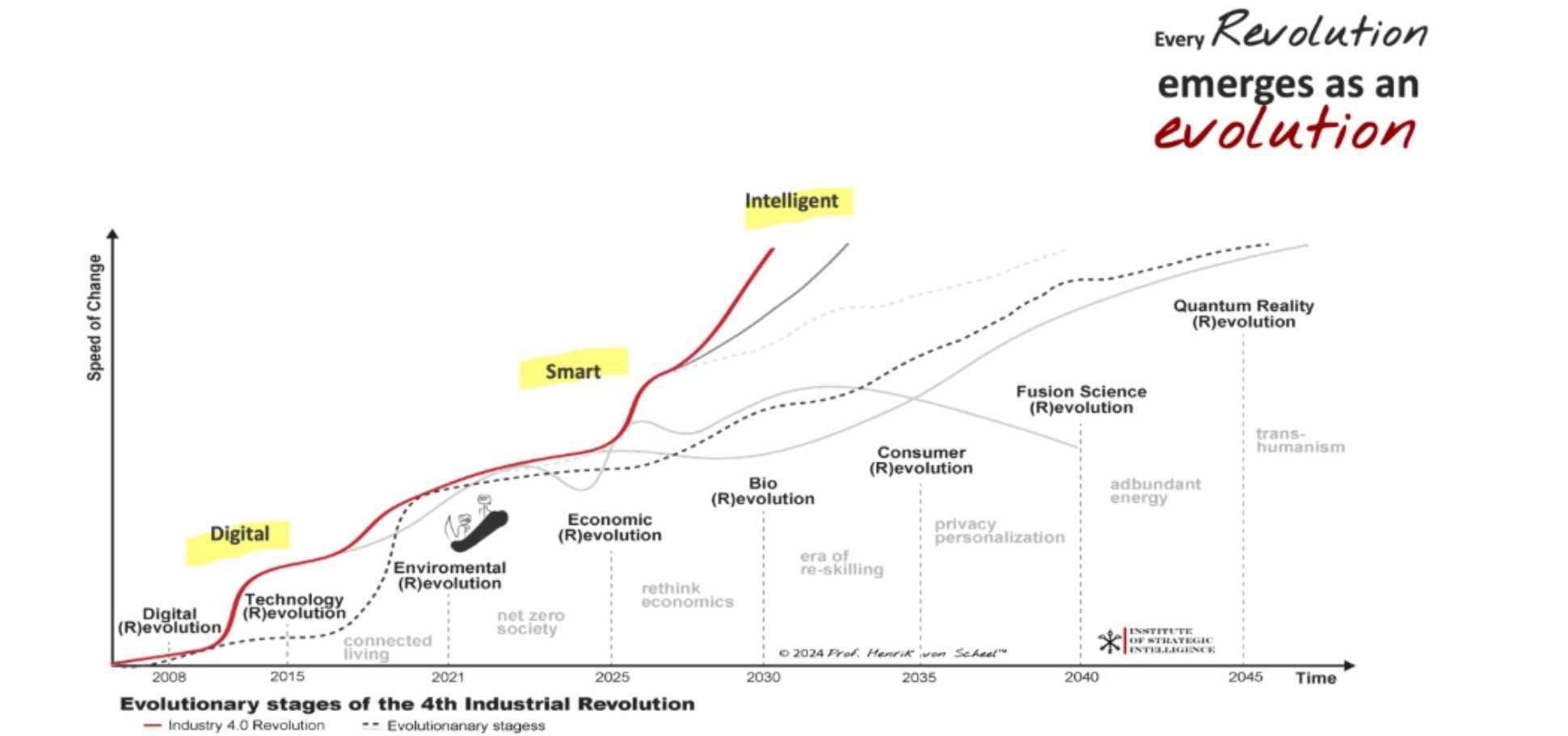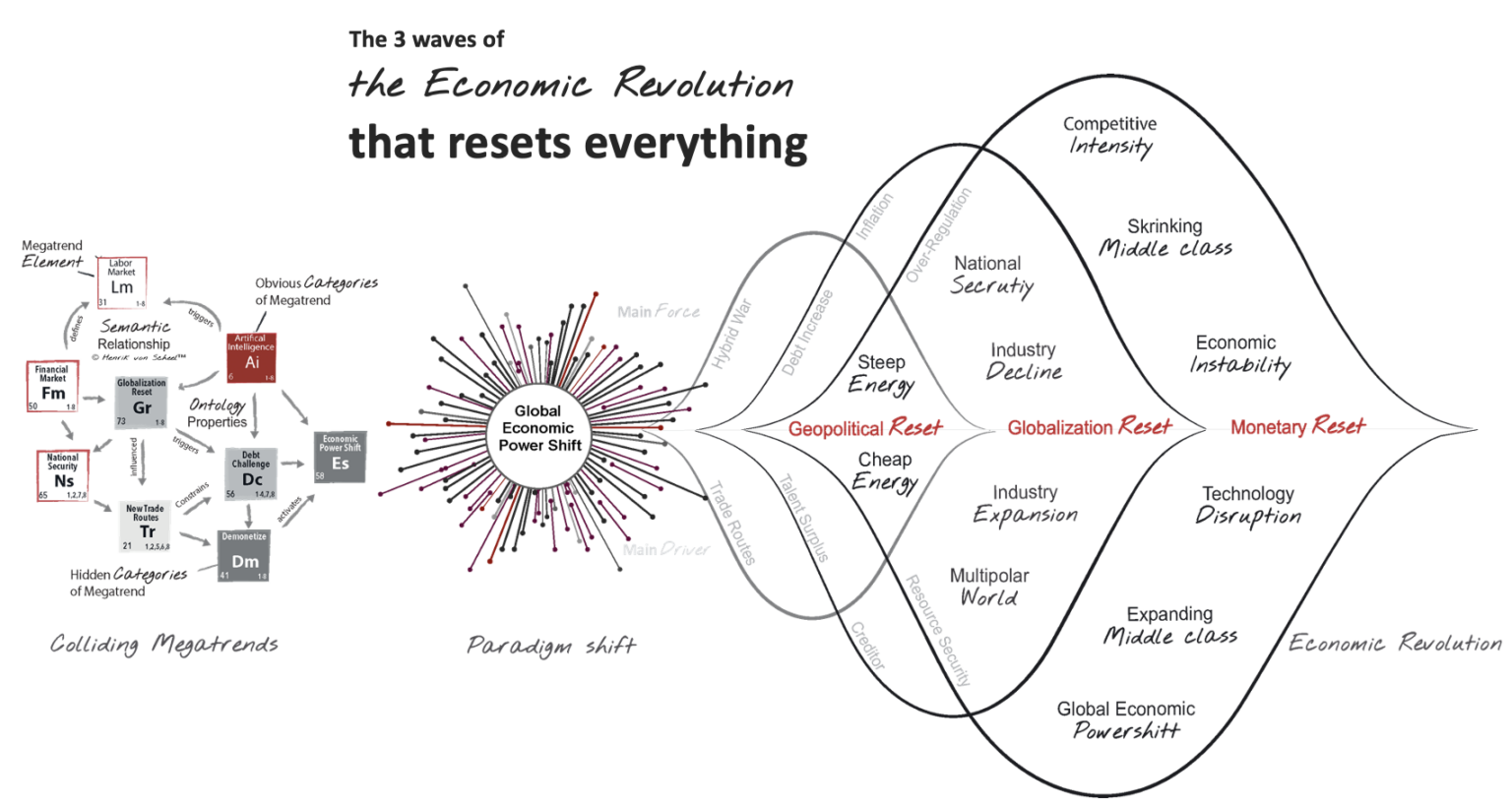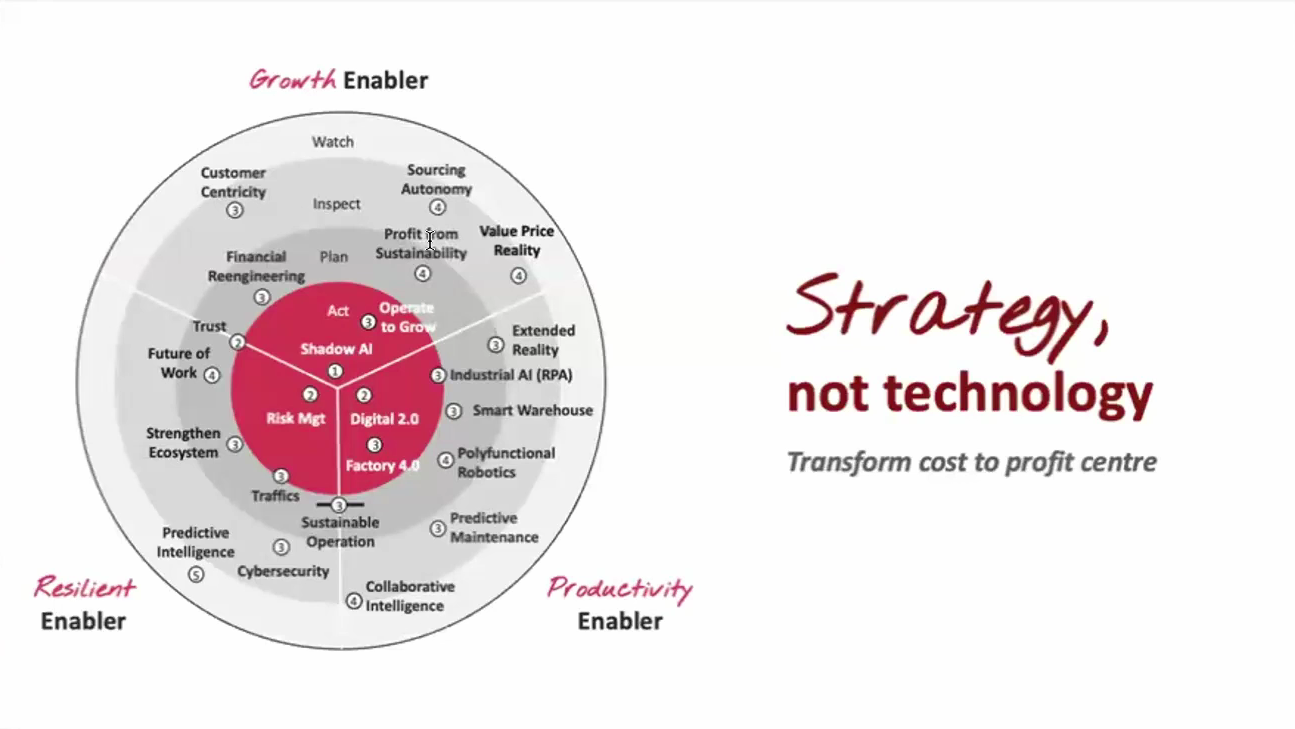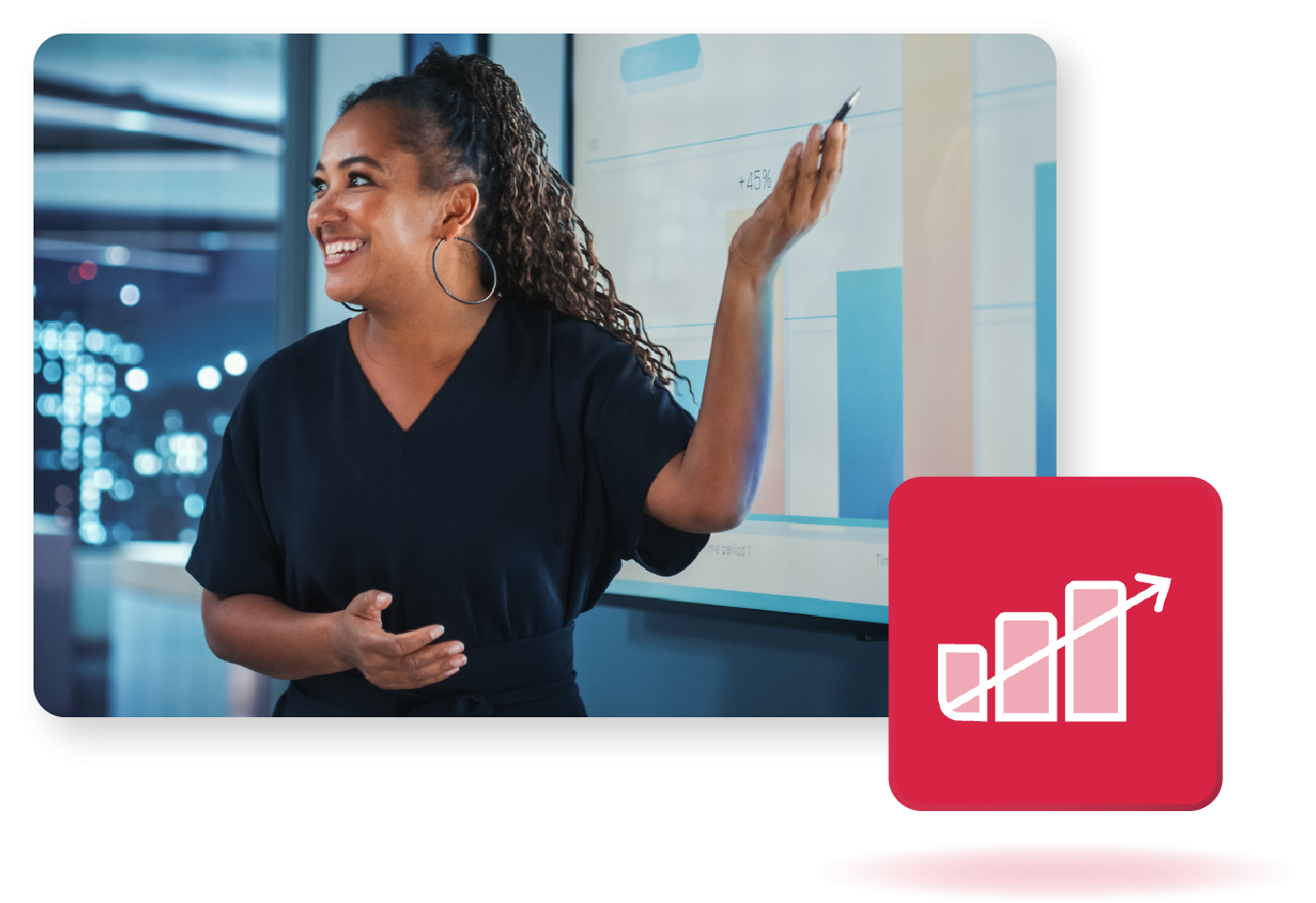

We are entering “the most disruptive period in human history,” says Henrik von Scheel, pioneering futurist and identifier of the 4th industrial revolution.
But what does “the most disruptive period in human history” mean? The word “disruption” has been rehashed so extensively that it’s lost much of its gravitas.
Sana Commerce sat down with Henrik von Scheel to better understand the disruption facing our industry, B2B Commerce, and the greater world.
His main takeaway? The world is changing, fast, and businesses need to act swiftly to be prepared.
What is Industry 4.0?
Industry 4.0, or the 4th industrial revolution, is von Scheel’s term for the emerging tech paradigm, characterized by a merging of the digital, physical, and virtual worlds. Industry 4.0 advancements include:
- AI
- IoT (Internet of Things)
- Cyber-physical systems
- Predictive maintenance
- Autonomous machines
While there is a lot of overlap between 4.0 and the 3rd revolution (digital), the 4th revolution is characterized by the speed of improvements, the interconnected nature of technology, and the blurring of lines between the physical and the digital.
As Henrik von Scheel says, “this is the biggest change in the shortest period of time. Ever.”

 The great reset
The great reset
100 years ago, the entire world economy was built upon gold reserves. Post WWII, the global economy was pegged to the US Dollar. Today, currencies float freely, but the US Dollar still serves as a backbone of international trade. That, according to von Scheel, is set to change.
Each of the preceding 3 industrial revolutions, Scheel explains, have heralded extreme geopolitical transformation. The ensuing decade will bring with it profound population shifts, economic power shifts, and increasing conflict.
All of these point to a breakdown of our current economic system, with the USD’s role as the economic guarantor at risk.
Sounds dire, doesn’t it? Henrik von Scheel doesn’t mince words. But, this clinical take provides room for action. Back 100 years ago, no one would have imagined that gold would be replaced by the US dollar. Today, we have the foresight to see this precarity, and we can identify and invest in tangible assets that can withstand an economic onslaught.
For B2B companies, that means your resources: your supply lines, your materials, your labor, your software. Trade will still be a necessity, so invest in building your trade potential today.
“This is the biggest change in the shortest period of time. Ever.”
Professor Henrik von Scheel
Act, plan, inspect, watch
Good luck is when opportunity meets careful planning.
Almost as if a cheat sheet into the future, Henrik von Scheel provided us a roadmap for actions to take now as well as what to plan for in the future as Industry 4.0 continues its transformation.
He bracketed his plan into three categories for businesses: productivity, resiliency, and growth. Then, he categorized actions by how urgently they must be implemented. Here are the most urgent (act and plan) actions that businesses can take now to prepare for Industry 4.0.

Productivity
Act
Digital 2.0: Extend your ecosystem with interface that you can interact with anytime, anywhere
Factory 4.0 Businesses need to build smart factories with tech such as predictive maintenance and autonomous robots
Plan
Industrial AI: 95% of AI pilots lose money; focus on easy, inexpensive fixes such as smart automations.
Sustainability Reporting: Mandated sustainability reporting is coming into force. Identify your environmental impact “baseline,” then report each year on how you’ve improved.

Resiliency
Global uncertainty has reared its head again. After a whipsaw few years of Covid shutting down global trade, followed by war destabilizing entire trade routes, tariffs have now dramatically impacted the stability and reliability of international commerce.
Henrik von Scheel’s response: adapt. Tariffs aren’t going away – so the plan must be to adapt to the new reality, and prepare for future disruptions.
Act
- Risk management: Ask yourself, “What is the most important risk factor in my supply chain that I can act on now?”
- Trust: Integrate your tech solutions so that they reinforce each other and serve your business
- Transparency: Build trust between your buyers and your supply chain by increasing transparency and guarding against AI gouging.
Plan
- Strengthen relationships: Build up and maintain real relationships with key people so that your business can continue to run in a crisis. E.G.: know the port manager so if trade becomes restricted, you can guarantee shipments.
- Cybersecurity: Employ redundancies; rely on legacy systems to protect data from a cybersecurity breach
- Beware shadow AI: unauthorized AI use by employees can lead to IT leakage. Guard against sensitive data breaches by using authorized AI programs only.
Growth
“You need to have enough technology to grow.” That was the bottom-line Henrik von Scheel delivered. However, that doesn’t necessarily mean adopting new technology for technology’s sake. Instead, focus on integrating existing technology and adopting easy wins that are inexpensive to implement, but yield outsized results. He focused on AI automations, calling out, in particular:
- PDF to invoice
- Order management via ERP
- Automating customer services and ticketing
- Document validation

The more tech we have, the more humanity we need to integrate
At the core of your business’s approach to Industry 4.0 must be the digital integrated business plan.
This plan is your roadmap for how you will create the architecture that is most relevant for you — using the B2B Commerce Solution and business logic as the foundation of an ecosystem that you can then customize and scale. This must be underpinned by the philosophy of “not serving the architecture, but the architecture serving the customer.”
By remembering to place the customer experience as the end goal of the process, businesses can ensure that the evolutions they make throughout the Industry 4.0 transformation will serve their business in a proactive, not reactive manner.

Have 30 minutes? Watch our on-demand session.
Learn more about the future of Sana Commerce Cloud by catching up with our session at Sana Connect.



